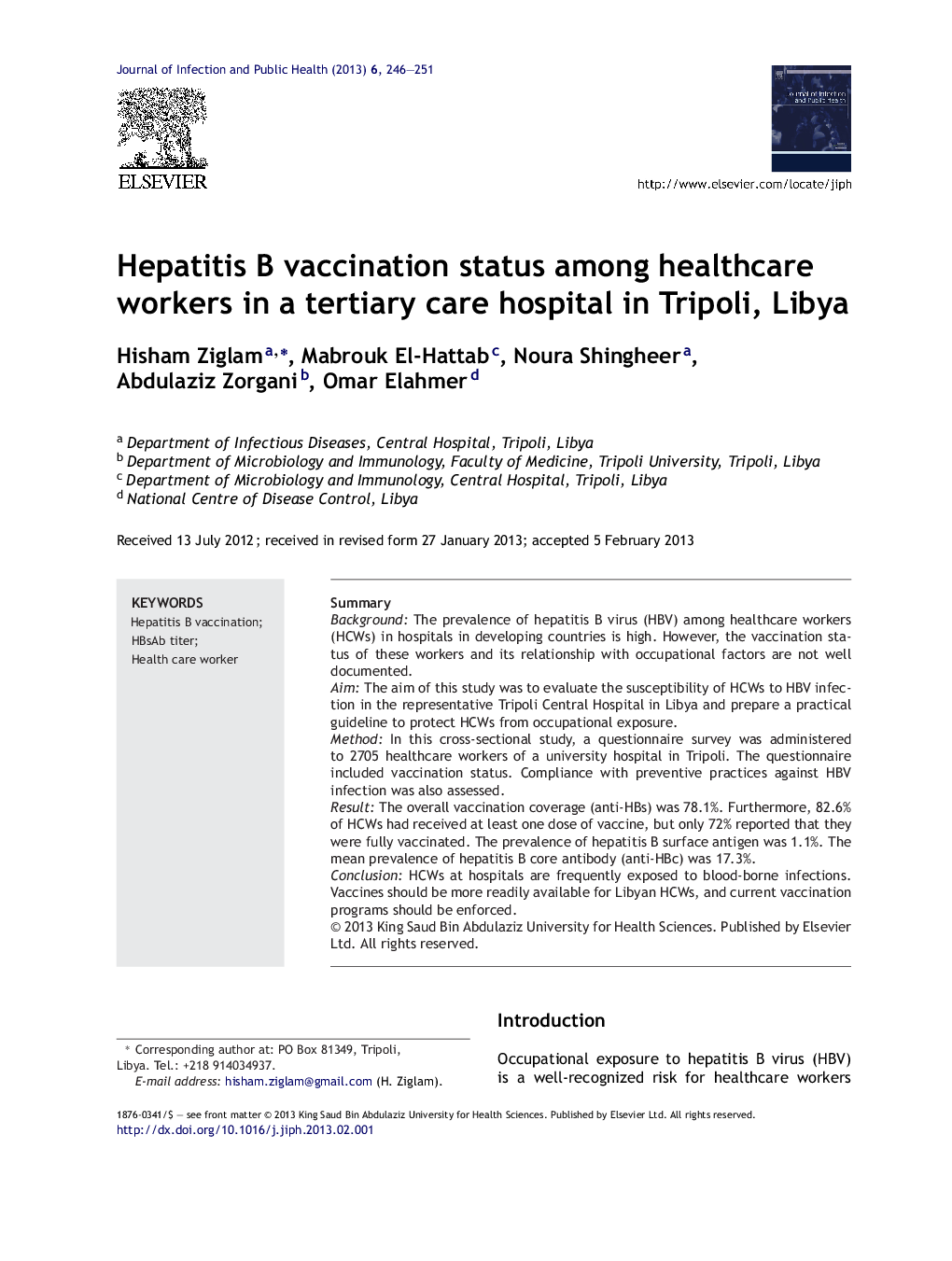| Article ID | Journal | Published Year | Pages | File Type |
|---|---|---|---|---|
| 3406338 | Journal of Infection and Public Health | 2013 | 6 Pages |
•Adult cohort involving 2705 health care worker in cross sectional study.•Analysis on sera collected from February to December 2011 conducted for evidence of HBV vaccination.•About 78.2% of Enrollee serological assays revealed enough anti-HBs antibody concentrations.•Study illustrates the importance of implementing the policy of hepatitis B immunization in every healthcare setting.
SummaryBackgroundThe prevalence of hepatitis B virus (HBV) among healthcare workers (HCWs) in hospitals in developing countries is high. However, the vaccination status of these workers and its relationship with occupational factors are not well documented.AimThe aim of this study was to evaluate the susceptibility of HCWs to HBV infection in the representative Tripoli Central Hospital in Libya and prepare a practical guideline to protect HCWs from occupational exposure.MethodIn this cross-sectional study, a questionnaire survey was administered to 2705 healthcare workers of a university hospital in Tripoli. The questionnaire included vaccination status. Compliance with preventive practices against HBV infection was also assessed.ResultThe overall vaccination coverage (anti-HBs) was 78.1%. Furthermore, 82.6% of HCWs had received at least one dose of vaccine, but only 72% reported that they were fully vaccinated. The prevalence of hepatitis B surface antigen was 1.1%. The mean prevalence of hepatitis B core antibody (anti-HBc) was 17.3%.ConclusionHCWs at hospitals are frequently exposed to blood-borne infections. Vaccines should be more readily available for Libyan HCWs, and current vaccination programs should be enforced.
